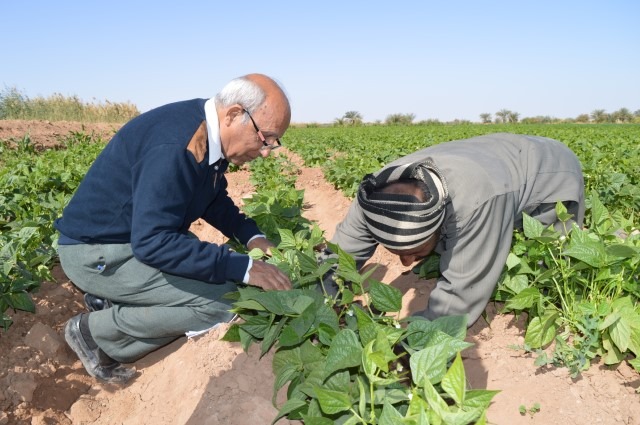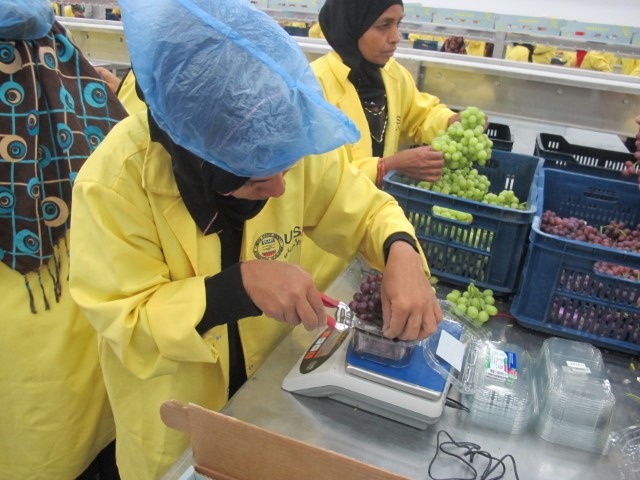
Integrating Smallholder Farmers into Egypt’s Export Market to Improve Livelihoods

Summary
Upper Egypt benefits from fertile soil, quality water sources, and an early growing season, enabling the region to supply high-value horticultural products to consumers abroad. Despite the market potential and comparative advantage, traditional smallholder farmers, who dominate Upper Egypt’s production systems, are hesitant to transition to higher-value, export-quality horticulture production. With the right support and tools, ACDI/VOCA’s experience in the region has proven that Upper Egyptian farmers are interested in taking advantage of those market opportunities.
In partnership with the Horticultural Export Improvement Association (HEIA), the USAID-funded Advanced Marketing and Agribusiness Logistics (AMAL) project developed inclusive horticulture value chains in Upper Egypt that integrate smallholder farmers into the high-value export market. Construction of a perishable terminal and targeted trainings at Luxor airport allowed Upper Egypt to more effectively compete in international markets by decreasing time-to-market costs and bringing much-needed supply chain infrastructure to the region.
Objectives
- Improved access and use of market intelligence
- Facilitated value chain linkages
- Catalyzed market-oriented production practices
- Organized and strengthened producer organizations
Activities and Approaches
- Strengthened institutional capacity of producer organizations to negotiate collective purchase arrangements with buyers and suppliers, managed and provided quality control throughout the production process, and provided services to members
- Built the capacity of smallholder producers and exporters to meet international market quality requirements and integrated new technologies and techniques into the production process
- Constructed a perishable terminal at Luxor airport to decrease time-to-market costs and brought much-needed supply chain infrastructure to the region
- Worked with packhouse operators and staff at the perishable terminal to ensure operational compliance with international standards
- Brokered sustainable commercial relations between HEIA exporters and smallholder farmers in Upper Egypt, facilitating forward contracting schemes between exporters and producer organizations
- Positioned the Center of Excellence to disseminate and analyze market information to continue these activities after project end
Achieved Results
- Created an equivalent of 2,500 full-time sustainable employment opportunities over the life of project for smallholder producers and rural SMEs in the Upper Egypt agribusiness sector
- Increased income per target household by an estimated $1,461 per year, which represented an increase of approximately $4.38 million in annual income across all households
- Reduced post-harvest losses by 10 percent per year by improving production techniques across the supply chain, post-harvest infrastructure, transportation, and processing facilities
- Increased smallholder farmers’ returns on assets such as land, irrigation systems, and storage facilities by increasing their internal rate of return by 2 percent per year
- Increased employability skills of 200 women to ensure their active participation in all activities and enhanced their participation in income-earning opportunities
- Promoted the uptake of three new innovative production techniques and technologies that improved productivity and yields and responded to end-market requirements as well as improved food quality and safety to satisfy international market-entry thresholds
Funder: USAID, HEIA
Contact: Sydney Sapper, ssapper@acdivoca.org



